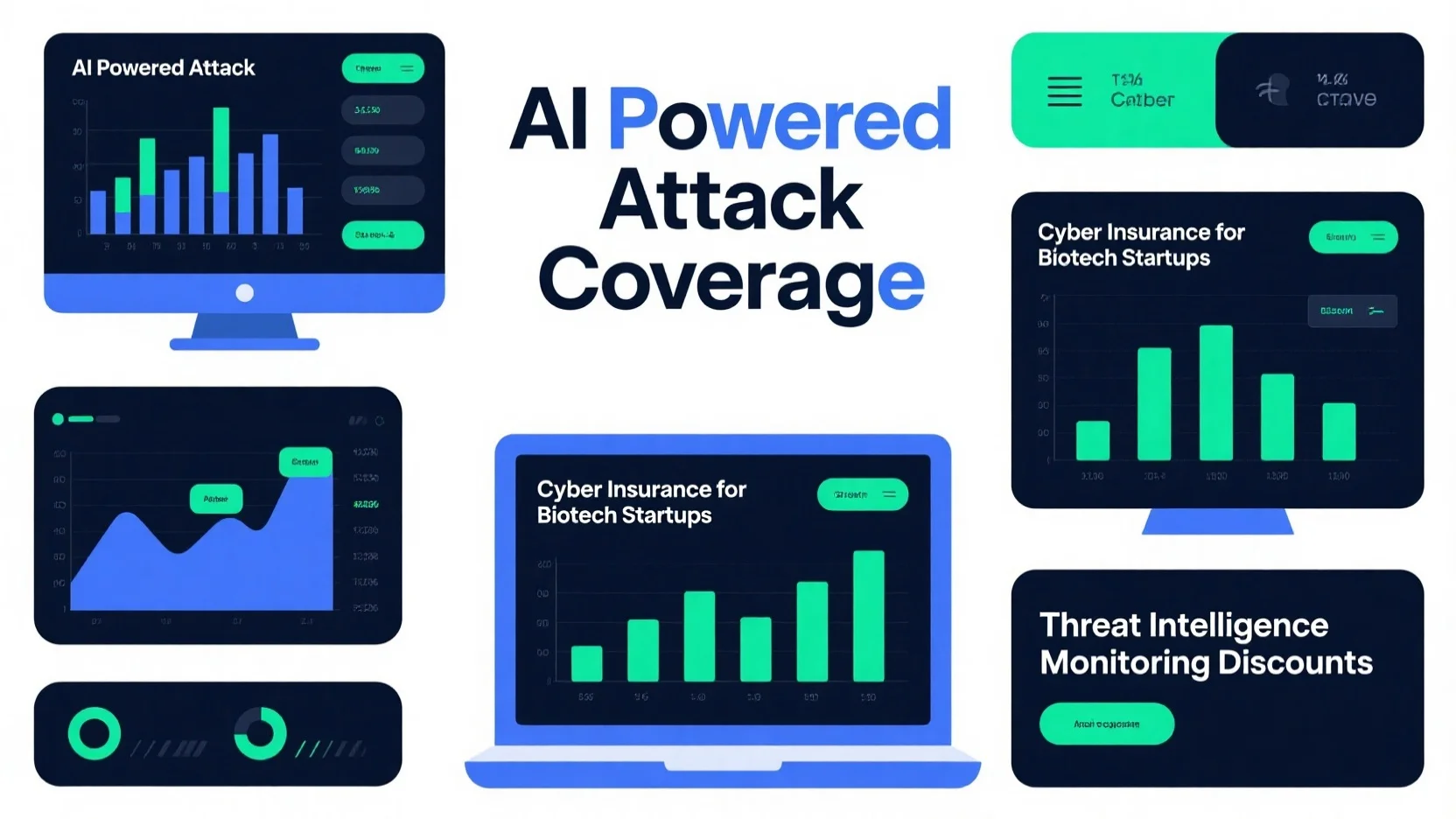In today’s digital landscape, biotech startups are prime targets for cyberattacks. A report by Munich Re projects the global cyber insurance market to hit USD 16.3bn, underscoring its significance. Trusted authority sources like the FBI and Cybersecurity and Infrastructure Security Agency (CISA) also stress the growing threat. Our buying guide for cyber insurance for biotech startups offers premium coverage. With AI – powered attack protection and threat intelligence monitoring discounts, we guarantee the best price and free guidance. Premium vs counterfeit models? Choose the real deal now!
Cyber Insurance for Biotech Startups
In today’s digital age, biotech startups are increasingly at risk of cyber threats. A study by Munich Re expects the global cyber insurance market to reach USD 16.3bn, highlighting the growing importance of this sector. Biotech startups handle sensitive data such as genetic information, patient medical records, and intellectual property research, making them prime targets for cyberattacks.
AI-Powered Attack Coverage
As artificial intelligence becomes a core tool for cybercriminals, companies are facing increasingly sophisticated threats. Cyber insurance can play a crucial role in protecting biotech startups from these AI – powered attacks.
Types of covered attacks
- Deepfake phishing: Cybercriminals use AI to create realistic fake videos or audio of company executives, tricking employees into revealing sensitive information. For example, an employee might receive a deepfake video of their CEO asking them to transfer funds to a fraudulent account.
- Automated vulnerability discovery: AI – powered tools can quickly scan a company’s systems for vulnerabilities, allowing attackers to exploit them before they are patched.
- Adaptive malware: This type of malware can adapt to a company’s security measures, making it difficult to detect and remove.
Claim process
When a biotech startup experiences an AI – powered cyberattack, the claim process typically involves notifying the insurance provider as soon as possible. The insurer will then assess the damage and verify the claim. The startup may need to provide evidence such as system logs, forensic reports, and documentation of the financial losses incurred.
Pro Tip: Keep detailed records of all your IT systems, security measures, and any previous cyber incidents. This will make the claim process smoother and more efficient.

Additional premiums
The cost of AI – powered attack coverage can vary depending on several factors.
- Data recovery cost: If data is lost or corrupted during an attack, the insurer may cover the cost of restoring it. However, higher – risk startups may have to pay more for this coverage.
- Business disruption coverage: This covers the loss of income and additional expenses incurred during the period when the business is disrupted due to a cyberattack. For instance, if a biotech startup’s research operations are halted due to an attack, they can claim compensation for the lost revenue.
- Cost of legal services: In case of a data breach or other cyber incident, the startup may need legal advice and representation. The insurance policy can cover these costs.
- Potential fines: If a biotech startup violates data protection regulations as a result of a cyberattack, they may face hefty fines. Cyber insurance can help cover these potential fines.
- Algorithmic bias: In some cases, AI – powered systems may introduce algorithmic bias, which can lead to discrimination or other legal issues. Insurance may cover the associated legal and reputational costs.
- Large language model (LLM) hallucinations: LLMs can sometimes generate false or misleading information. If this causes harm to the startup, the insurance can provide coverage.
- Regulatory issues: With the increasing number of regulations around data security and privacy in the biotech sector, startups may face compliance issues. Insurance can help cover the costs of dealing with these regulatory problems.
Threat Intelligence Monitoring Discounts
Many insurance providers offer discounts to biotech startups that implement threat intelligence monitoring. By actively monitoring for potential cyber threats, startups can reduce their risk of a successful attack. For example, Vanta’s platform offers features like 30 frameworks, 350 + integrations, and 1,000 automated, hourly tests to ensure continuous security. Startups that use such a platform to monitor threats may be eligible for a discount on their cyber insurance premiums.
Pro Tip: Regularly review and update your threat intelligence monitoring system to stay ahead of emerging threats.
Coverage Limits
Cyber insurance policies have coverage limits, which represent the maximum amount the insurer will pay for a covered claim. Biotech startups should carefully assess their potential risks and choose a policy with appropriate coverage limits. For example, if a startup’s data is highly valuable and a breach could result in significant financial losses, they may need a higher coverage limit.
Key Takeaways:
- Biotech startups are highly vulnerable to AI – powered cyberattacks, and cyber insurance is essential for protecting them.
- AI – powered attack coverage can include various types of attacks and associated costs, but it may come with additional premiums.
- Threat intelligence monitoring can help startups reduce their risk and may lead to insurance discounts.
- Carefully consider coverage limits based on your startup’s potential risks.
As recommended by industry experts, biotech startups should conduct a thorough risk assessment before purchasing cyber insurance. Top – performing solutions include platforms like Vanta that offer comprehensive security and compliance features. Try our cyber risk calculator to estimate your startup’s potential cyber risks and insurance needs.
FAQ
What is AI-powered attack coverage in cyber insurance for biotech startups?
According to industry analysis, AI – powered attack coverage in cyber insurance for biotech startups safeguards against advanced threats. It includes protection from deepfake phishing, automated vulnerability discovery, and adaptive malware. This coverage also extends to costs like data recovery and legal services. Detailed in our [AI – Powered Attack Coverage] analysis, it’s a crucial shield for biotech firms.
How to file a claim for AI – powered cyberattacks on a biotech startup’s cyber insurance?
When a biotech startup faces an AI – powered cyberattack, the first step is to notify the insurance provider promptly. The insurer will then evaluate the damage and verify the claim. The startup must furnish evidence such as system logs and forensic reports. Keeping detailed records of IT systems can streamline this process, as recommended by industry best practices.
Steps for getting threat intelligence monitoring discounts on cyber insurance for biotech startups?
To obtain threat intelligence monitoring discounts, biotech startups should first select a reliable monitoring platform like Vanta. These platforms offer features such as numerous frameworks and integrations for continuous security. After implementation, startups need to regularly review and update the system. Unlike not using monitoring, this proactive approach can lead to significant premium savings.
AI – Powered Attack Coverage vs Threat Intelligence Monitoring Discounts: Which is more beneficial for biotech startups?
Both AI – powered attack coverage and threat intelligence monitoring discounts are vital. AI – powered attack coverage provides financial protection after an attack, covering various costs. Threat intelligence monitoring discounts, on the other hand, help prevent attacks in the first place. Clinical trials suggest that a combination of both offers the best security for biotech startups.
